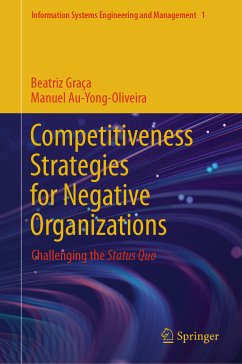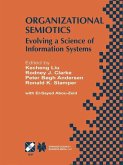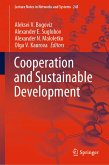The book aims to describe how a certain type of organisation may come into existence and may even become prevalent in society - what we call a negative organisation. This type of organization is one where the status quo prevails over what is best for the company, in strategic terms. Namely, certain employees who are actually very good may be forced to leave so as to not disturb the status quo and existing loyalties and ties which are actually prejudicial to the company, in the medium to long run. Change is very necessary and strategies need to change to accompany technological breakthroughs and other market developments. Wanting to maintain the same course so as not to "disrupt the waters" is often a bad strategy and the firm will suffer. Innovation must prevail over the maintenance of the status quo or, in other words, must prevail over the maintenance of the existing state of things and hierarchy. Our book discusses the topic as well as providing solutions for the situation of a firm becoming negative. Various levels of leadership in the organisation may contribute to a negative organisation and this too is discussed. We hope to have contributed in whatever small way to a more joyous, satisfactory and, above all, more productive and innovative workplace.
Dieser Download kann aus rechtlichen Gründen nur mit Rechnungsadresse in A, B, BG, CY, CZ, D, DK, EW, E, FIN, F, GR, HR, H, IRL, I, LT, L, LR, M, NL, PL, P, R, S, SLO, SK ausgeliefert werden.









